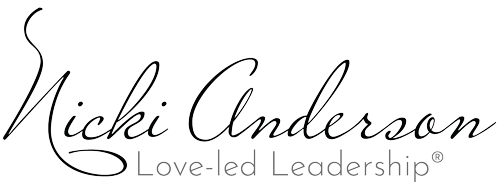Healthy conflict can build trust, but once fear and ego take over, connection is lost. – N. Anderson
We’re living in a time when people are angry at everything and everyone. Compassion is mistaken for weakness, and any form of compromise is often labeled as “selling out.” The tension in our country isn’t just political or ideological, it’s deeply human. People are angry, people are afraid, and many are exhausted from trying to explain “their side” or protect their peace by simply shutting down or severing relationships.
Is it possible to see conflict differently?
Believe it or not, when conflict is healthy, it can lead to deeper understanding. It’s not something to avoid, but something to navigate with curiosity and compassion. I know, it’s hard when you disagree, but hear me out. When we approach it with less ego and more curiosity, along with a genuine desire to hear another perspective, conflict can actually build trust. The problem isn’t the disagreement, rather it’s what we bring into it, especially when fear and ego step in.
When Fear and Ego Lead the Way
Fear tells us we have to win. Ego tells us we have to be right. I have had many conversations with friends who dismiss others perspectives without even having a conversation. They are convinced us that anyone who sees the world differently is a threat. And once that story sets in, meaningful dialogue disappears. All that’s left is defensiveness, blame, and disconnection. I see this showing up everywhere, within families and friendships to workplaces and community spaces. The moment fear and ego take over, the goal shifts from understanding to self-protection. Communication breaks down and relationships fall apart.
“Respectful communication under conflict or opposition is an essential and truly awe-inspiring ability.” – Bryant McGill
Leading with Love (and Boundaries)
Love-led leadership™ isn’t soft. It doesn’t mean being agreeable or avoiding hard conversations. In fact, it requires the opposite. It means staying in the room, staying present and curious, especially when things get uncomfortable.
It’s asking yourself:
- Can I approach this person with compassion, even if I disagree?
- Can I speak my truth without needing to dominate or be “right”?
- Can I protect my boundaries without shutting them out?
This kind of leadership starts in our everyday conversations, our kitchens, meeting rooms, comment sections, and quiet one-on-one conversations.
So, What Can We Do?
We’re not powerless. We may not be able to change systems or people overnight, but we can change how we show up in our conversations, especially the hard ones.
Here are a few love-led practices that make space for connection, even in conflict:
- Get curious, not defensive.
Instead of reacting, ask: “Can you share more about why you feel this way?” Curiosity reduces fear, and people are open to more meaningful dialogue when they feel heard. - Set boundaries with grace.
If things get heated, try: “Let’s take a break and revisit this when we’re both ready to listen.” Boundaries are the baseline for safety, not walls to shut people out. - Separate the person from the position.
We are not our opinions. Beneath most views are shared values—love, dignity, security. Look for those. When we look for the good, conversations shift.

Returning to our shared humanity.
Whenever the conversation takes a turn, take a breath and remember:
This is a person with a story. A person with fears, just like mine.
We don’t have to agree to offer grace. And grace, offered in intentional doses, can soften even the most hardened divides. Kristin Neff’s research on self-compassion includes the concept of common humanity, the idea that suffering and imperfection are part of the shared human experience. “When people enter conflict, they often mask deeper fears, (fear of being wrong, rejected, unseen).”
Final Thoughts
This world doesn’t need more hate. It needs more self-awareness, more courage to stay present when things get hard, and people willing to model what love-led conflict actually looks like: respectful, honest, boundaries-based, and kind.
Let’s not let fear and ego get in the way of our healing.
Let’s remember: healthy conflict, led with love, can be the foundation where trust grows. And maybe, just maybe, that’s where healing begins.
Where might grace help you reconnect, without compromising your truth?
Here’s to leading with love,
Nicki
Tags: compassion, conflict, connection, ego, fear, leadership, leadership development, leading with love, love-led leadership, selfawareness, trust
